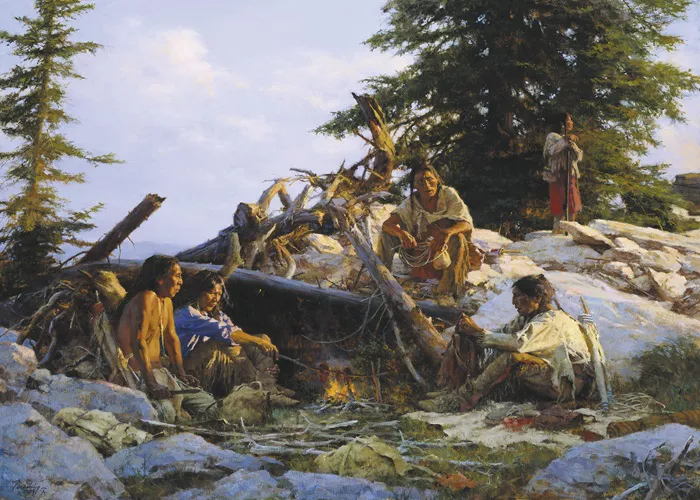American history is rich with significant events, and May 11 has been a day of notable moments. From statehood anniversaries to conflicts, technological advancements, and social movements, this date holds an important place in the timeline of the United States. Below is a detailed look at major events that took place on May 11 in American history.
What Happened on May 11 in American History?
1858 – Minnesota Becomes the 32nd State
On May 11, 1858, Minnesota officially joined the United States as the 32nd state. The area was originally inhabited by Indigenous groups, including the Dakota and Ojibwe. European settlers arrived in the 17th century, leading to conflicts over land and resources. The Minnesota Territory was established in 1849, and after rapid population growth, statehood was proposed. Minnesota’s admission to the Union was part of a larger national expansion, reflecting the westward movement and development of new territories. The state’s economy initially relied on fur trading, logging, and agriculture, which played key roles in its early development.
1862 – The Battle of Eltham’s Landing During the Civil War
During the American Civil War, the Battle of Eltham’s Landing took place on May 11, 1862. This battle occurred as part of the Peninsula Campaign, where Union forces under General George B. McClellan sought to capture the Confederate capital, Richmond, Virginia. Union troops landed at Eltham’s Landing, Virginia, in an attempt to outflank the Confederate army. Confederate forces, led by General Joseph E. Johnston, engaged in a defensive maneuver to delay the Union advance. The battle resulted in minor casualties but allowed Confederate forces to retreat in an orderly fashion. While not a decisive engagement, this skirmish was part of the larger struggle between North and South during the war.
1894 – The Pullman Strike Begins
One of the most significant labor disputes in American history, the Pullman Strike, began on May 11, 1894. The strike was organized by workers of the Pullman Company in Chicago, Illinois, who protested wage cuts and high rents in company-owned housing. Led by the American Railway Union (ARU) under Eugene V. Debs, the strike spread across the nation, disrupting rail traffic. The federal government intervened, sending troops to break the strike, resulting in violent clashes and casualties. The Pullman Strike highlighted the growing tensions between labor and management in the late 19th century and led to the establishment of Labor Day as a national holiday in 1894.
1927 – The Academy of Motion Picture Arts and Sciences is Founded
On May 11, 1927, the Academy of Motion Picture Arts and Sciences (AMPAS) was founded in Los Angeles, California. The Academy was created by industry leaders, including Louis B. Mayer of Metro-Goldwyn-Mayer (MGM), to promote the film industry and improve labor relations within Hollywood. The Academy soon established the Academy Awards, or Oscars, to recognize excellence in filmmaking. Over the decades, the Oscars became one of the most prestigious awards in the entertainment industry, influencing film production, directing, acting, and technical innovations in cinema.
1949 – Israel Joins the United Nations with U.S. Support
On May 11, 1949, the United Nations voted to admit Israel as its 59th member. The United States was a strong supporter of Israel’s membership, reflecting its diplomatic efforts in the aftermath of World War II and the Holocaust. The establishment of Israel in 1948 led to regional conflicts, but the U.S. recognized the new nation early on. American support for Israel became a key element in U.S. foreign policy in the Middle East. The UN vote helped solidify Israel’s position on the international stage, setting the stage for future diplomatic and military developments.
1963 – Birmingham Campaign: The Stand in the Schoolhouse Door
The Civil Rights Movement saw a pivotal moment on May 11, 1963, during the Birmingham Campaign. This campaign, led by Dr. Martin Luther King Jr. and the Southern Christian Leadership Conference (SCLC), aimed to end segregation in Birmingham, Alabama. The city was a stronghold of racial segregation, with local leaders resisting desegregation efforts. During this campaign, protesters, including schoolchildren, faced police dogs, water hoses, and arrests. The movement gained national attention, leading to increased federal support for civil rights. The events in Birmingham paved the way for the Civil Rights Act of 1964, which ended segregation in public places and outlawed discrimination.
1987 – The First Heart-Lung Transplant at Johns Hopkins
On May 11, 1987, Johns Hopkins Hospital in Baltimore, Maryland, performed its first heart-lung transplant. The pioneering surgery was a significant step forward in the field of organ transplantation. Advances in medical technology made it possible to perform such complex procedures, improving survival rates for patients with severe heart and lung conditions. The success of this surgery led to further advancements in transplant medicine, helping thousands of patients in the following decades.
1997 – Deep Blue Defeats Chess Champion Garry Kasparov
On May 11, 1997, IBM’s supercomputer Deep Blue made history by defeating world chess champion Garry Kasparov in a six-game match. This event marked the first time a computer defeated a reigning world champion in a chess match under standard tournament rules. Deep Blue’s victory showcased the rapid advancement of artificial intelligence and computational power. The match raised questions about the future of AI in various fields, including business, science, and entertainment. This event was a turning point in the relationship between humans and machines, influencing the development of modern AI systems.
Conclusion
May 11 has been a day of significant historical events in the United States. From statehood milestones and military battles to labor strikes, civil rights movements, and technological breakthroughs, this date reflects the country’s progress and challenges. Each of these moments has shaped American history, influencing policies, social changes, and technological advancements. By examining these events, we gain a deeper understanding of the historical forces that have shaped the nation.
Related Topics:

